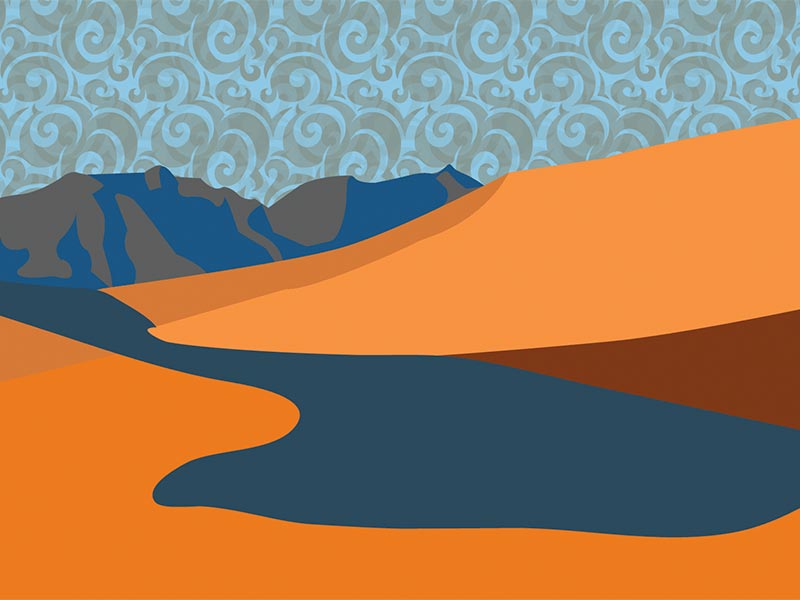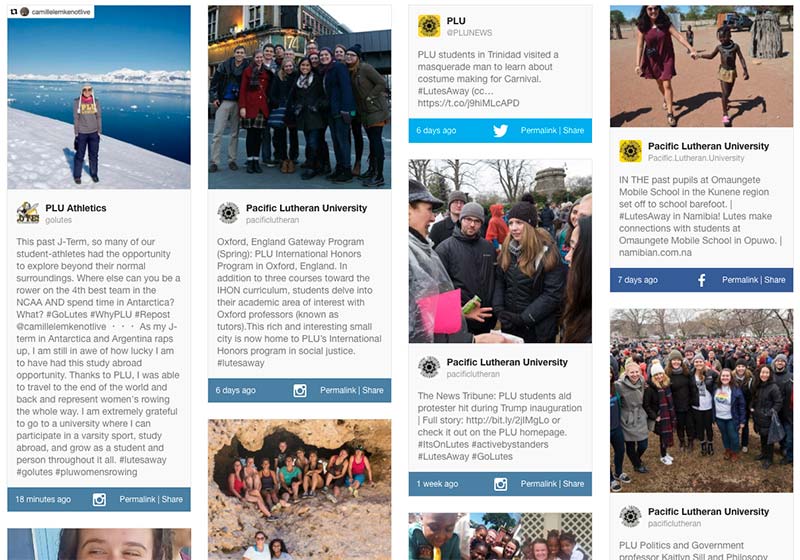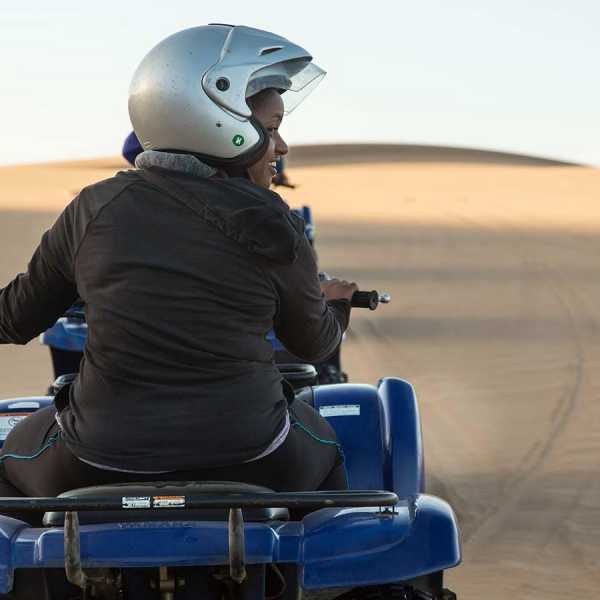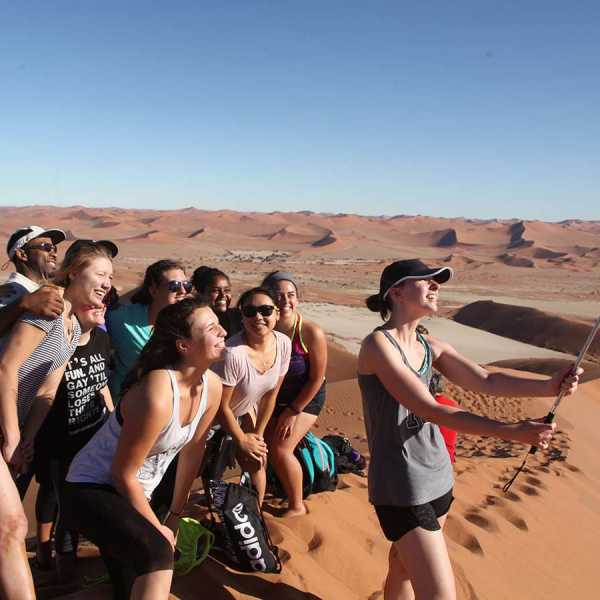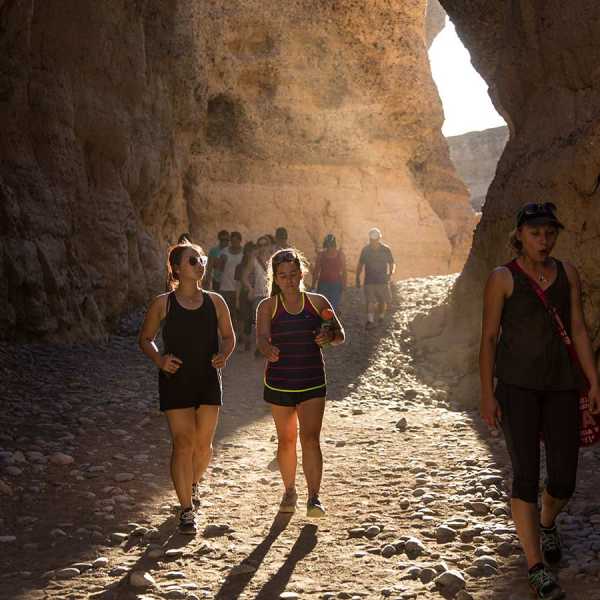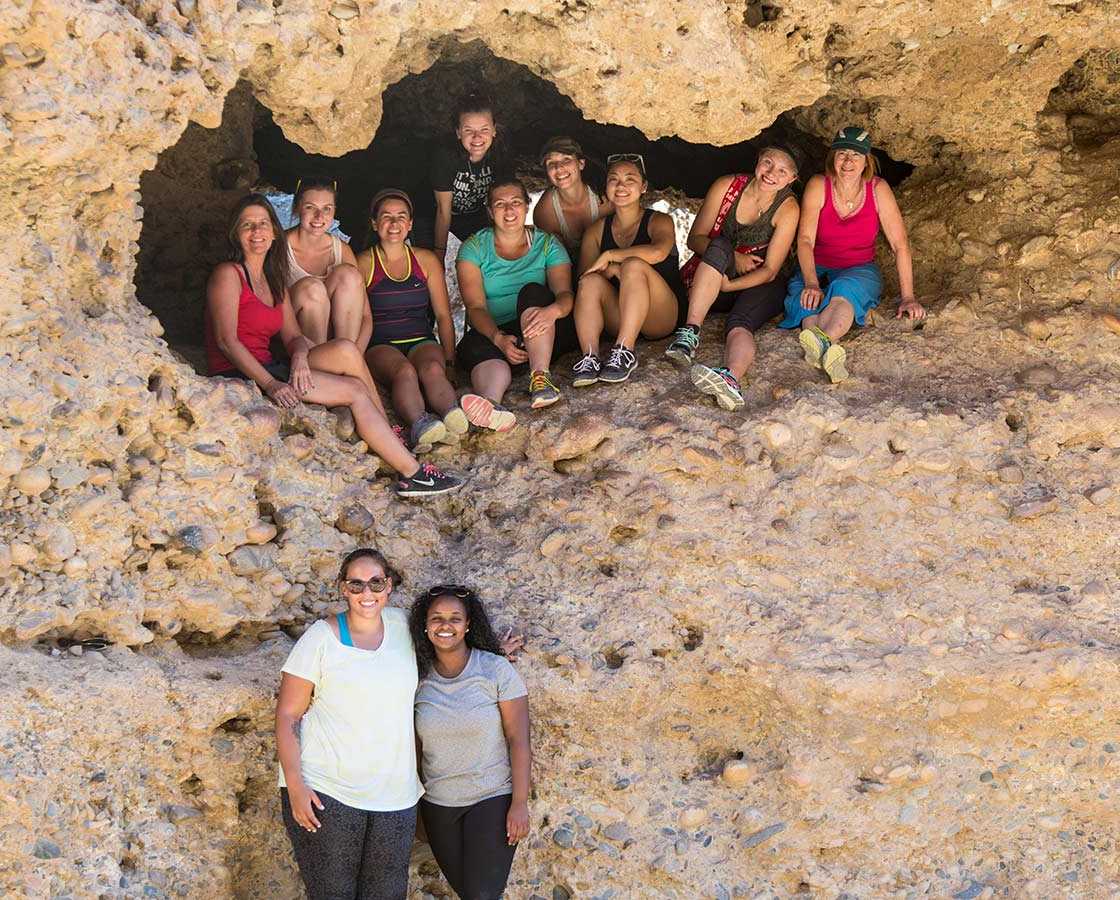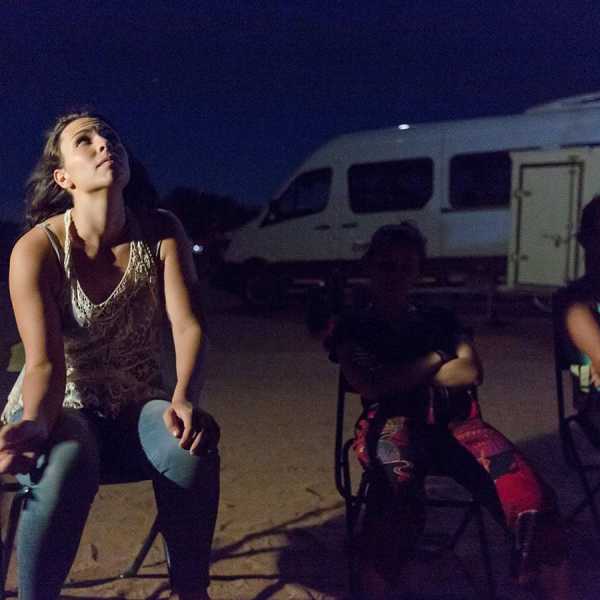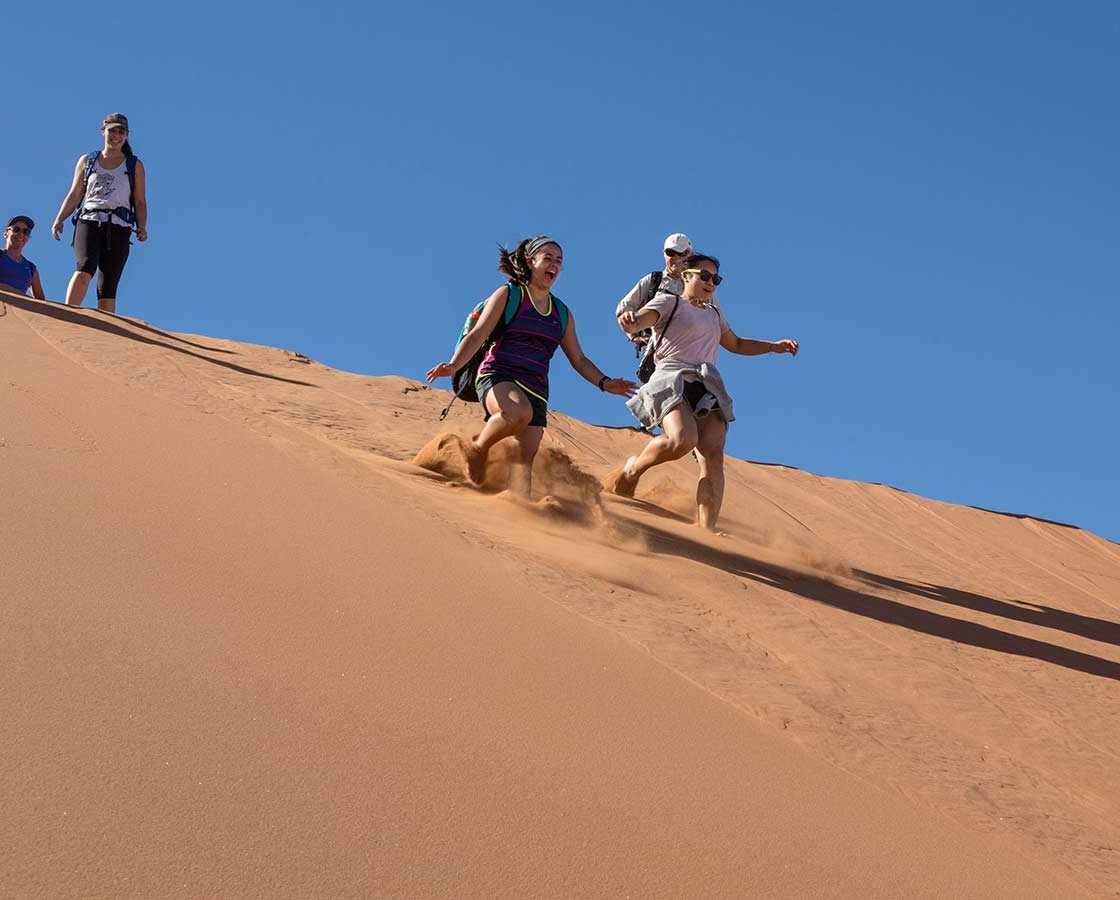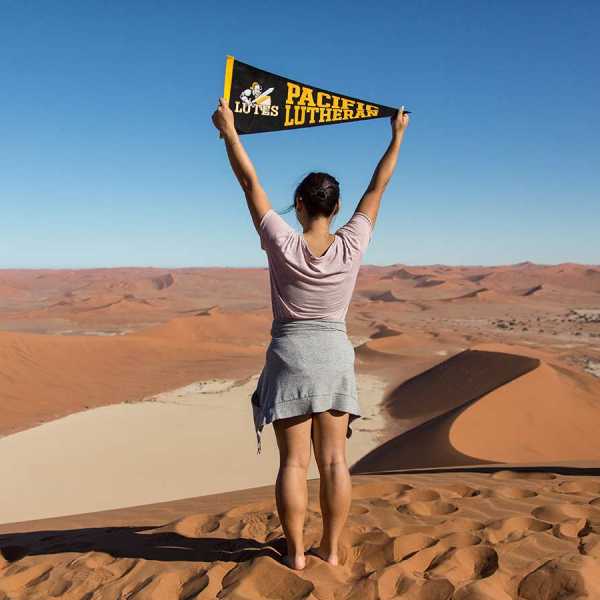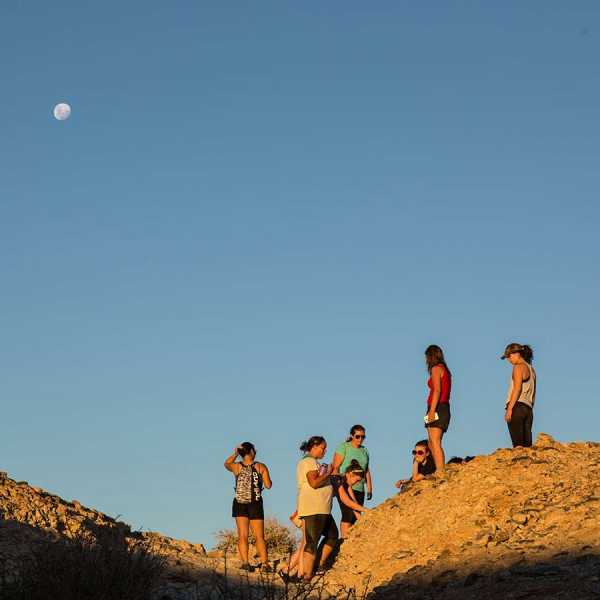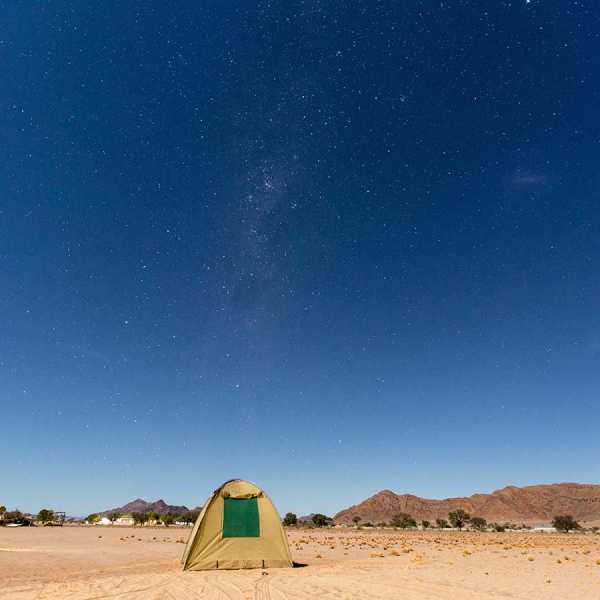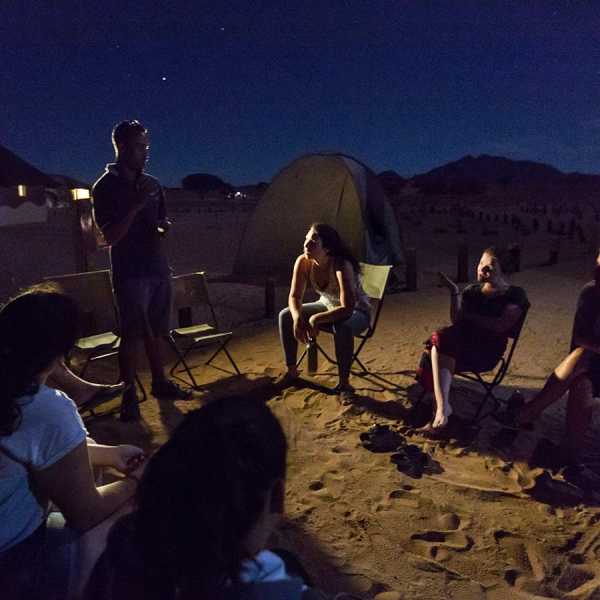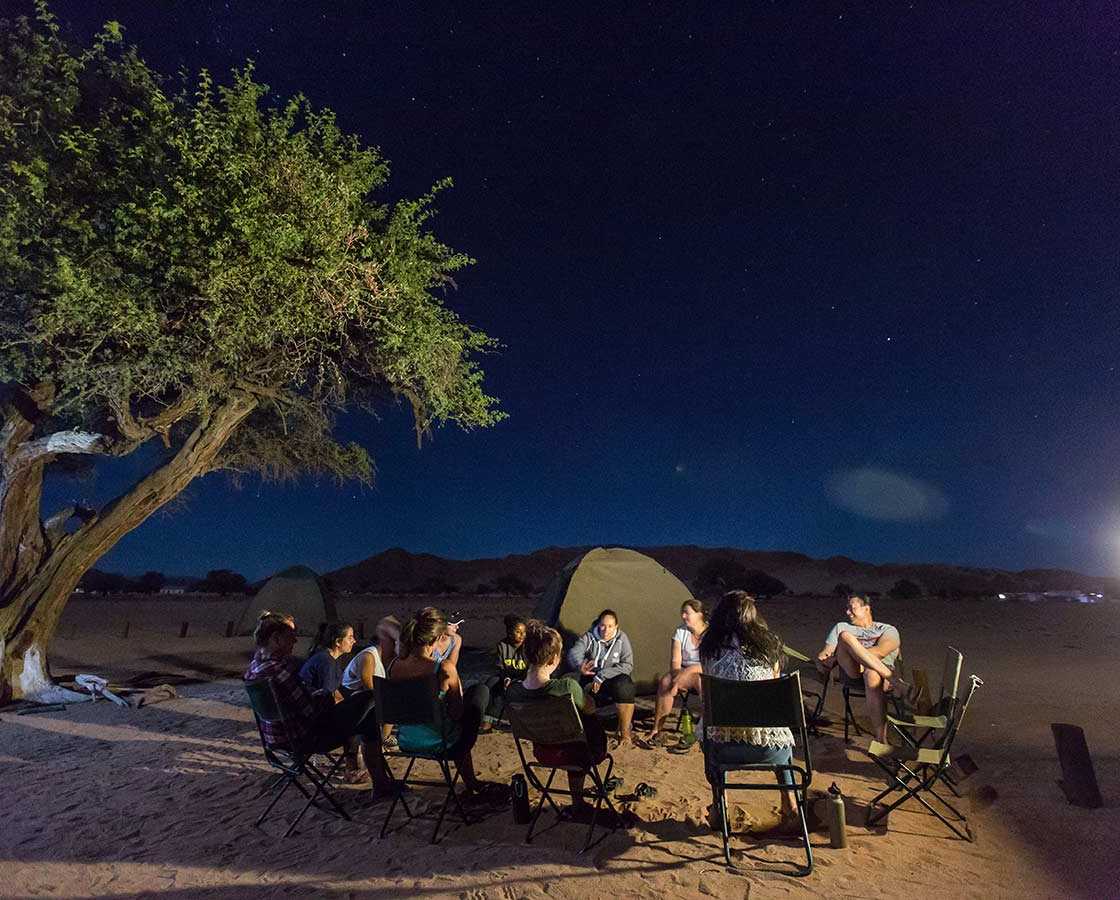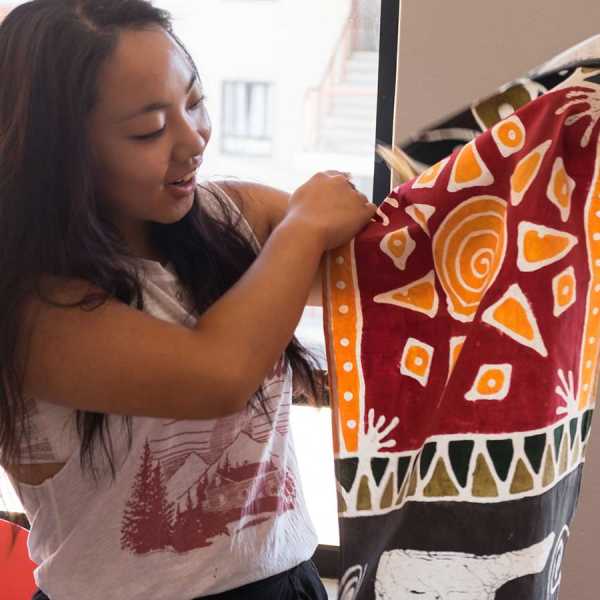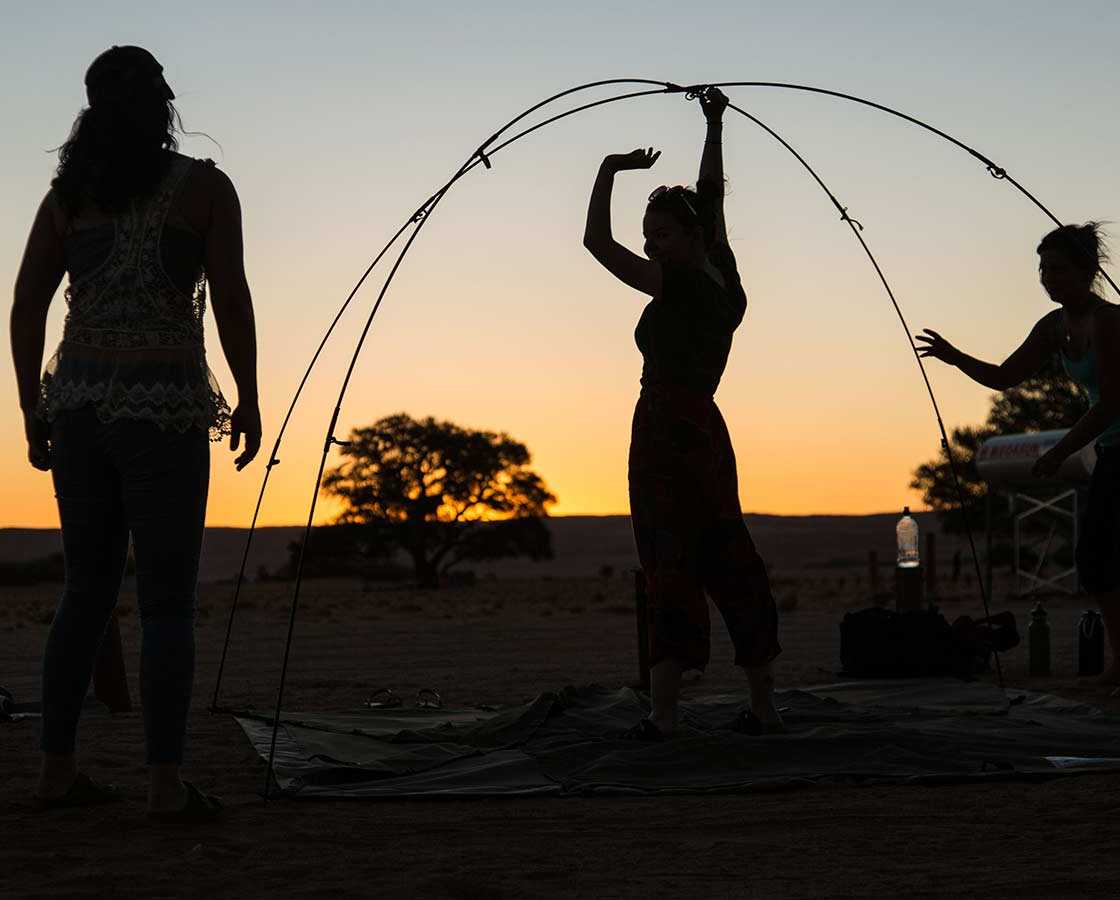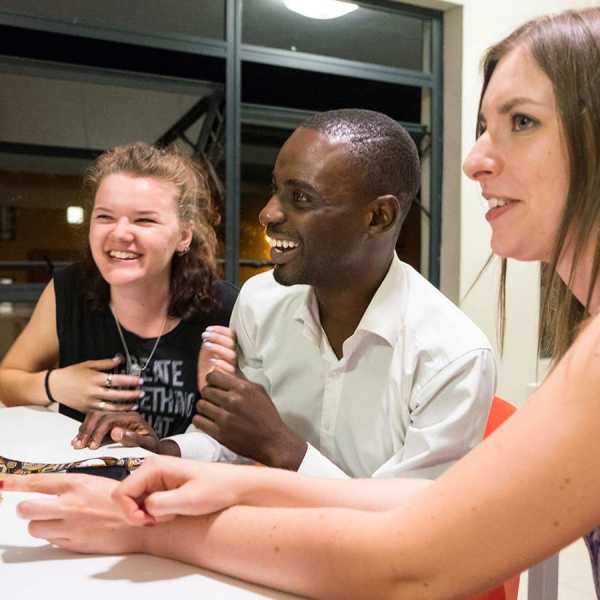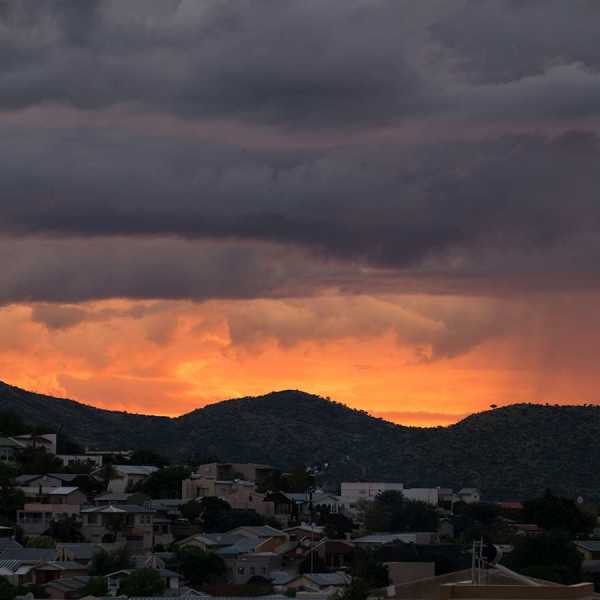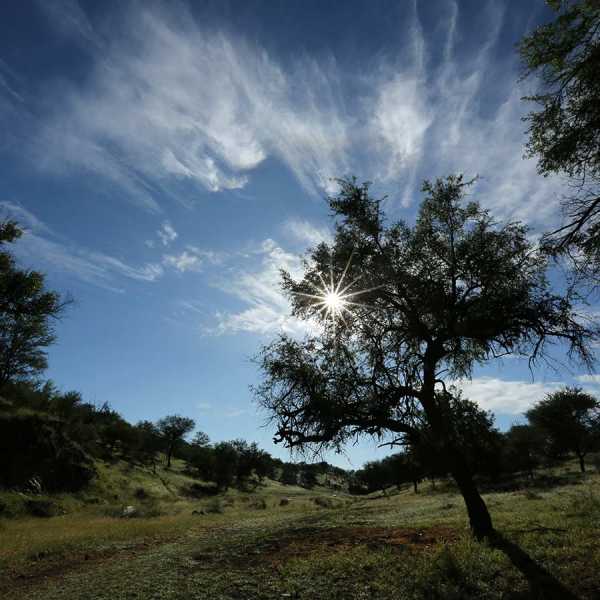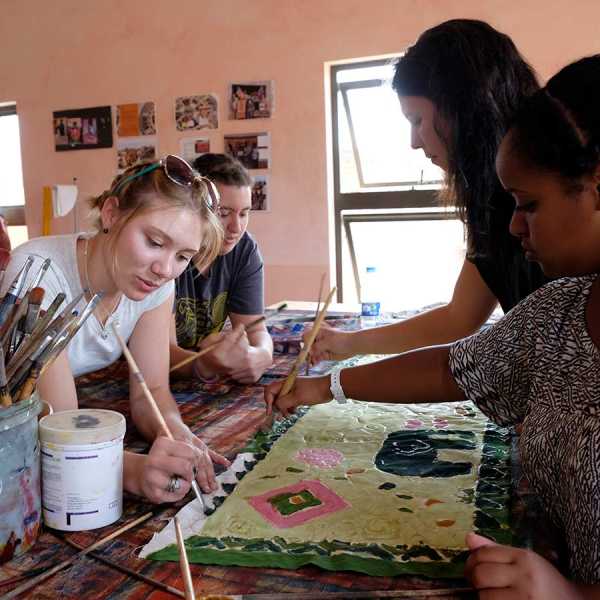Immersive experience abroad guides aspiring teachers — and kindles romance between two Lutes
Sam Rise and Allison Small, barely acquaintances, boarded their first plane en route to Namibia along with a cadre of aspiring teachers in January 2012.
The Pacific Lutheran University students knew their lives were about to change during their time studying away in the southern African nation. But neither anticipated just how much. And they didn’t expect one of the biggest changes to take hold before arriving in Windhoek.
It’s a long story, and the details waver depending on who tells it, but it starts with a broken TV screen on the airplane, a detour during their layover in Europe and a city full of shuttered businesses.
“We got there on a Sunday morning in January and everything was closed,” Allison recalled with a chuckle, side-eying her now husband about his idea to jaunt away from the group to Wiesbaden, Germany.
“Everyone else had a good time in Frankfurt,” Sam quipped in response.
It took four days for Sam and Allison’s relationship to bloom. Five years later, they’re happily married and fondly recall their studies in Namibia’s capital city.
One of them continues to teach as originally planned, the other took a slightly different path. Both credit Namibia for the direction of their vocation.
And they aren’t alone.
Many students carry lifelong lessons with them after returning from Windhoek, says Jan Weiss, assistant professor of education.
An educational relationship that started with a grant-funded teacher training program involving PLU faculty members has evolved into a deeply immersive experience for PLU students.
The education component in Namibia, one of many focuses in the Gateway program there, is built on close collaboration between PLU and the University of Namibia.
Participants such as the Rises, Weiss says, develop mutual respect, empathy and confidence in a different culture, while honing their abilities to adapt and problem solve.
“The interaction with Namibians from all areas, not just education, is ongoing and consistent,” Weiss said. “Through those relationships that continue over time, there’s this sense of trust and authenticity.”
That trust creates a learning lab where lessons go both ways — Namibian teachers mentor PLU students on classroom management while also drawing from the students’ experiences themselves.
“It’s a reciprocal learning program for Namibians and U.S. students,” Weiss said. “The teachers in Namibia trust the preparation levels of PLU students.”
‘Learning on the fly’
Allison Rise graduated from PLU in 2012, and went on to earn a master’s degree at Seattle University. As a school psychologist who helps determine if students in the Auburn School District face learning disabilities, she said flexibility and improvisation are key. She learned about both while studying away.
In Namibia, Allison said the average day of teaching was intense — 12 hours split between the school and an orphanage or after-school enrichment program. It often involved “learning on the fly,” she said.
One time, during Allison’s planning hour, a group of students found her and asked if she could teach them art in place of an absent teacher. (Weiss says Namibians struggle to find substitutes in such cases.)
So, she did, relying on her literacy skills as opposed to her limited art skills to come up with a quick, engaging activity. She grabbed a picture book, read it aloud without showing her learners the pictures and asked them to illustrate a part of the story. Then, they shared their work and compared interpretations of what they heard.
“Not bad for 30 seconds of prep, if I do say so myself,” Allison said.
She also taught geography, a steep learning curve for a newcomer with very little knowledge of the country.
“I had to teach the 13 regions of Namibia,” she said, eyes wide. “That prepared me to be a school psychologist, jumping in and figuring it out as I go.”
Another challenge was communicating. Allison said many of the students she worked with in Windhoek still were learning English. Overcoming a language barrier in an immersive learning environment prepared Allison to work with English language learners in her job today.
Weiss says it’s vital for aspiring teachers to interact with students from different cultures, as Allison and others have and continue to do in Namibia.
“They realize every child has their own story and that’s what they need to know to teach effectively,” Weiss said. “You all of a sudden recognize that you’re comfortable navigating a world that is so different from your own.”
Sam underscored that point: “It forces you to think about how to teach differently.”
Going back
Sam’s experience in Namibia didn’t end with PLU. He finished his master’s degree in July 2012 and immediately left to do Peace Corps work in Aranos, Namibia, about four hours away from where the couple originally studied. He split his time between two host families and taught science, technology, engineering and mathematics (STEM), as well as robotics for grades 8-12.
“They really wanted me to push STEM,” he said. “They see it as an opportunity to get into the Western economic and communication world.”
Tamara Williams, executive director of the Wang Center for Education at PLU, said STEM is a major academic focus throughout many aspects of the Namibia Gateway program. Writing is another, she said.
Sam says his time teaching in PLU’s program helped affirm his love of teaching. More specifically, it affirmed his desire to work with marginalized communities.
WINDHOEK, NAMIBIA
This English-speaking country provides an ideal location for students in education and the natural sciences to study at the University of Namibia and gain necessary work experience through an internship and practicum.
In Namibia, he gained experience dealing with issues that teachers in those situations face — poverty, language barriers, lack of resources — in a global context.
Not all the teaching moments were easy, but Sam said they were necessary.
“Struggling with things is where learning happens,” he said. “You have to go into a study abroad experience with a growth mindset, because it’s going to be hard. You have to be resilient. There is no going back home.”
Education major Anna Parker ’17 said those unexpected challenges offered the most enriching learning opportunities.
She said she learned to be resourceful during her time co-teaching with her mentor, since Namibian teachers often must create any of the learning materials they use from scratch — such as letters that adorn the walls or illustrations in picture books.
Parker also strengthened her classroom management skills, after working with double the number of learners she was used to back home.
Those and other skills she absorbed by collaborating with her Namibian teacher.
“I learned a lot from her. She was very firm, but extremely loving,” Parker said. “She was hard on her kids, but they knew that she loved them and they loved her back.”
Parker, much like the Rises who came before her, stressed the importance of teaching in a culture that’s different from your own. The trust that Weiss builds as an “honorary Namibian,” she said, leads to more authentic interactions.
“You need to be adaptable,” Parker said. “From my perspective, you can really only gain those things from travel. It’s the best way to understand yourself as well as other people.”
Be uncomfortable
While Allison and Sam both recognize the struggles they faced abroad, they also recognize — and urge others to recognize — the privilege that comes with an immersive experience.
Some of the places PLU students visit while studying away in Namibia are places local kids may never see in their lives due to poverty, illness, lack of transportation and other socioeconomic factors.
“This is these kids’ lives. This is their day to day,” Allison said. “Even when you’re having this immersive experience, there’s still that privilege there.”
Sam stressed the importance of harnessing the power of privilege.
“It’s what you do with your privilege once you acknowledge it that makes the difference,” he said. “I think that’s why I wanted to go back and do Peace Corps.”
For Allison, she used her privilege to create connections between her students here and abroad.
Upon returning to the U.S., she jumped right back into a classroom she was working in before she left, this time as a student teacher. The Tacoma school looked different than the one she experienced in Windhoek — twice the size with half the kids.
She had students in her classrooms from each country exchange letters. “I wanted them to understand where I was going and what I was doing,” she said of her American students. “I wanted to use it as a teaching tool.”
Sam and Allison credit Windhoek “100 percent” for finding each other. Their wedding rings were handcrafted by a Namibian jeweler, and their home is adorned with souvenirs from their time there — reminders of the time everything changed.
But the biggest reminder of their time studying away is the love they have for the work they do.
The experiences that landed them where they are today came with plenty of challenges, but the Namibia program allowed them more space to dive deeper into those complexities.
“There’s something to be said about doing your best learning out of your comfort zone,” Sam said.
Allison agreed.
“It’s important to be uncomfortable,” she said. “This is an easy way to be uncomfortable really fast.”
Support Study Away
Help students experience powerful learning and engagement abroad.


